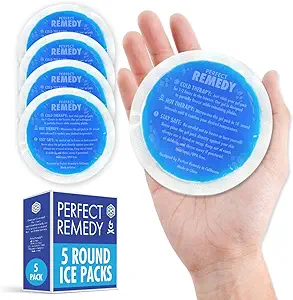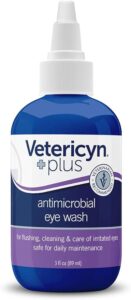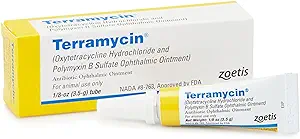Introduction about swollen eyelids in a cat
As a cat owner, it’s important to keep an eye on your pet’s health and wellbeing. One common issue that can affect cats is swollen eyelids. This condition can be caused by a variety of factors. It can sometimes be a sign of a more serious underlying health problem. In this article, we will explore the causes, symptoms, and treatment options for swollen eyelids in a cat. By learning how to recognize and treat this issue, you can help ensure that your feline friend stays happy and healthy for years to come.
Why is my cat's top eyelid swollen?
If you’ve noticed that your cat’s top eyelid is swollen, there are a number of potential causes. Some of the most common include allergies, infections, and injuries. In some cases, swollen eyelids in a cat are a sign of more serious underlying health problems, such as autoimmune disorders or cancer.
Symptoms of swollen eyelids in a cat include redness, irritation, and discharge from the affected eye. Your cat may also show signs of discomfort or pain, such as rubbing or pawing at the affected eye.
While some cases of swollen eyelids in a cat resolve on their own, it’s important to be aware of when to be concerned. If your cat’s swollen eyelid persists for more than a few days or is accompanied by other symptoms, such as lethargy or loss of appetite, it’s best to consult a veterinarian.
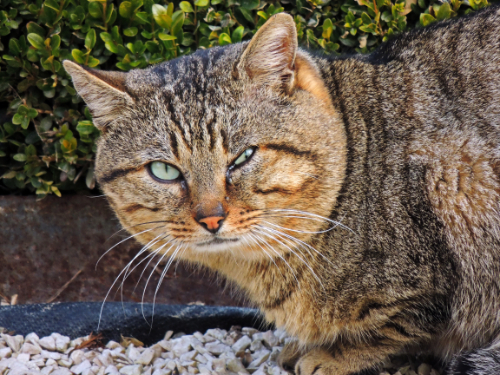
Will a swollen eyelid in a cat resolve on it's own?
If your cat has a swollen eyelid, you may be wondering if the issue will resolve on its own. While some cases of swollen eyelids in a cat improve with time and proper care, others require professional treatment to prevent further complications.
Cats have a remarkable ability to heal on their own, and some cases of swollen eyelids in a cat resolve without intervention. However, it’s important to monitor your cat’s condition closely and be aware of when to seek professional help. If your cat’s swelling is severe, persistent, or accompanied by other symptoms, such as discharge or redness, it’s best to consult a veterinarian.
Should I go to the vet if the eyelid is wollen in a cat?
If you’re concerned about your cat’s swollen eye, it’s always best to consult a veterinarian. While some cases of swollen eyelids in a cat improve with home remedies or time, others require professional treatment to prevent further complications.
Consulting a veterinarian is especially important if your cat’s swelling is severe, persistent, or accompanied by other symptoms. Such as discharge, redness or discoloration of the eyeball. Your veterinarian can perform a thorough examination and run diagnostic tests, such as blood work or eye cultures, to determine the underlying cause of your cat’s swelling.
Treatment options for swollen eyelids in a cat vary depending on the cause of the issue. In some cases, medications such as antibiotics or antihistamines may be prescribed to address underlying infections or allergies. In more severe cases, surgery may be required to remove tumors or repair injuries. By consulting a veterinarian and following their recommended treatment plan, you can help ensure that your cat receives the care they need to recover from their swollen eye.
Common reasons for sudden onset of swollen eyelids in a cat
If you’ve noticed sudden swelling of your cat’s eye, there are a few common reasons why this may be happening. These include eye infections, allergic reactions, and injuries.
Infections
Eye infections are a common cause of sudden swelling in cats, and they are caused by a variety of bacteria, viruses, or fungi. Symptoms of eye infections include discharge, redness, and itching. Cat flu is a common cause for eyelid swelling.
Allergic reactions
Allergic reactions can also cause sudden swelling in a cat’s eyelid. Common allergens for cats include dust, pollen, insect sting allergy and certain types of food. In addition to swelling, allergic reactions also cause itching, sneezing, or other respiratory symptoms.
Injuries
Injuries, such as scratches or bites from other animals, can also cause sudden swelling in a cat’s eyelid. These injuries may also be accompanied by other symptoms, such as bleeding or signs of pain.
If you notice sudden swelling in your cat’s eye, it’s important to monitor their condition closely. Consult a veterinarian if the swelling persists or worsens over time. Prompt homecare can help address the underlying cause of the swelling and prevent further complications.
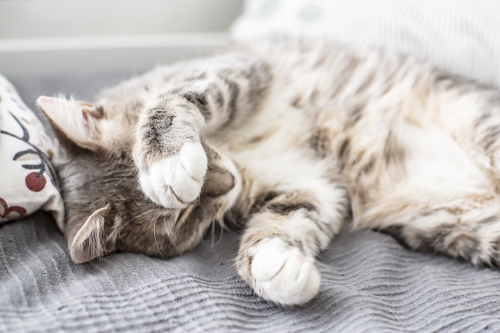
What to do if your cat's eye is closed after a fight
If your cat has been in a fight and their eye is closed or swollen, it’s important to take action to ensure their health and well-being. Here are some steps you can take:
Signs of a serious injury
If your cat’s eye is closed after a fight, it’s important to watch for signs of a serious injury. These may include heavy bleeding, discharge, or signs of severe pain or discomfort. If you notice any of these symptoms, it’s important to consult a veterinarian right away.
Home remedies to help with minor injuries
You can also administer eye drops or ointments to help soothe any irritation or inflammation. It also reduces bacterial growth.
When to take your cat to the vet
If your cat’s eye remains closed or swollen for more than a day or two, or if there are any signs of a serious injury, it’s important to consult a veterinarian. Your veterinarian can perform a thorough examination and determine the best course of treatment to help your cat recover from their injuries.
In general, it’s important to take a proactive approach to your cat’s health and well-being, and to seek professional help when needed. By doing so, you can help ensure that your cat stays healthy and happy for years to come.
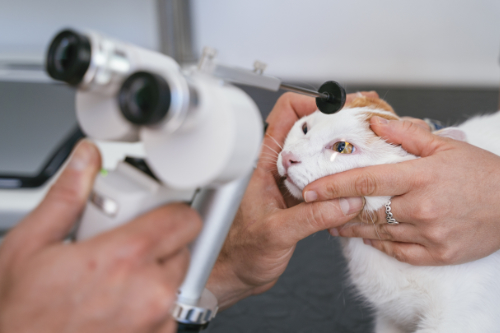
Conclusion
In conclusion, a swollen eyelid in a cat can be caused by several factors, including infections, allergies, and injuries. While some cases resolve on their own, it’s crucial to seek professional help if the symptoms persist or worsen.
It’s essential to keep an eye on your cat’s health and take preventive measures to reduce the risk of eye problems. Regular checkups with your veterinarian can help identify potential issues early on, allowing for prompt treatment and a better prognosis.
In summary, if you notice any changes in your cat’s eyes or behavior, it’s essential to seek professional help promptly. Follow the veterinarian’s instructions carefully. Be proactive in preventing potential eye problems by keeping your cat’s living environment clean and free from potential irritants.
Remember, taking care of your cat’s health is a crucial responsibility as a pet owner. By being attentive to your cat’s needs, you can ensure that they live a happy and healthy life.

